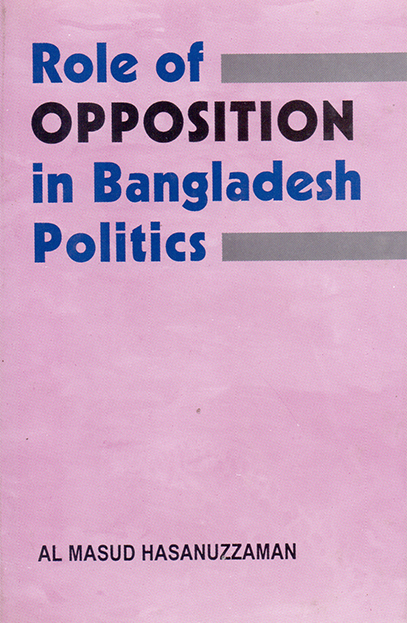- Shop
- Academic & Non-fiction
- Role of Opposition in Bangladesh Politics
Role of Opposition in Bangladesh Politics
https://uplbooks.com/shop/9789840514533-role-of-opposition-in-bangladesh-politics-8226 https://uplbooks.com/web/image/product.template/8226/image_1920?unique=56f7a2e
| Language: English |
Tags :
Book Info
Existence of opposition, both as alternative government and as critic of the party in power, is a significant feature of democratic system. Opposition assumes an important role in parliamentary democracy along with its formal functions inside the legislature to constantly monitor the Treasury. This book gives an analytical account of the oppositions role in Bangladesh politics since independence under successive regimes. The author examines opposition's parliamentary activities and its mode of operation outside the legislature. After independence, Bangladesh had a short lived Westminster type parliamentary framework followed by authoritarianism and army rule for years. During the period, though constrained by various restrictions, opposition activities including participating in major elections, and legislatures as well as organizing movements influenced Bangladesh politics. In the First Parliament, there was a meagre opposition representation with no official recognition. The number of opposition parliamentarians increased considerably in the Second and Third Legislatures with their formal status in the House. They, however, had an ineffective parliamentary role in the midst of lopsided executive legislature relationship under quasi-democratic and autocratic rules. Hence they resorted to agitational politics and anti-government movements outside. The 1991 election brought a strong opposition in the parliament culminating to a nascent two-party system under the reintroduced parliamentary set up. But lack of legislative compromise, persistence of mutual intolerance, and the like prompted the competing parties to play unconstitutional roles creating political crises and confusion. Opposition's prolonged agitational movement for neutral caretaker government and its constitutional basis ultimately paved the way for restoring democratic process in the country.

Al Masud Hasanuzzaman
Al Masud Hasanuzzaman is Professor of Government and Politics at the Jahangirnagar University, Dhaka. He received BA (Honours) and MA degrees in Political Science in 1977 and 1979 from Dhaka University. He obtained MSc degree in Development Studies from the University of Bath, UK in 1984. He earned his Ph.D from Dhaka University in 1995. He was the Chairman of Government & Politics Department, JU, from 1986 to 1989. He was a Senior Fulbright Scholar in the Department of Political Science at the Columbia University, New York, USA during 1991-92 academic session.



